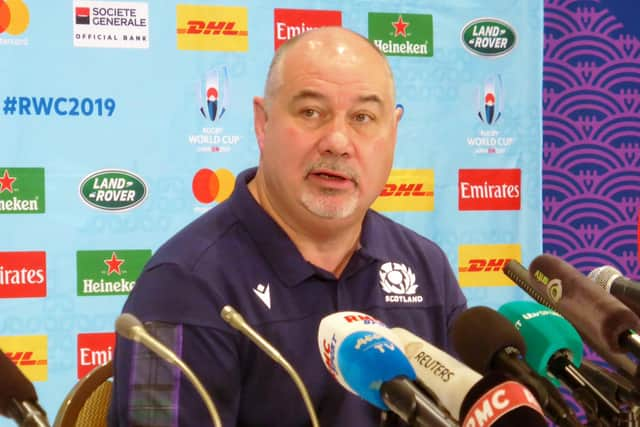Six Nations: Scottish Rugby chief Mark Dodson hasn't given up hope of fans at games


Scotland are due to play three home matches in the championship, against Wales on February 13, Ireland on March 14 and Italy on March 20.
Dodson knows the ever-evolving nature of the pandemic makes planning for fans at games virtually impossible but insists that the Scottish Rugby Union is financially robust enough to withstand a Six Nations without supporters.
Advertisement
Hide AdAdvertisement
Hide AdAt the end of last month the SRU announced that it had canvassed the Scottish Government to have 25,000 fans at each of their home matches.


Dodson accepts that the announcement at the weekend of tougher Covid restrictions makes that impossible.
Speaking after the third and final part of the SRU’s annual general meeting, the chief executive said: “I think given what’s happened with this second wave, or potential third wave, it puts back the prospect of having meaningful crowds at the Six Nations this year.
“At the time we talked about it, we believed 25,000 was quite possible, as did England, as did Wales and as did everybody else.
“I think we’ve seen a new landscape for Covid. We are still hopeful we can get crowds into the Six Nations. Two of our three homes games are at the end of the Six Nations at the end of March so we’ve got more chance with them but it’s something we have to talk to government about.
“The important thing is that our financial situation, regardless of no crowds at the Six Nations, is now secure because of the refinancing we have achieved through to 2022.”
This was achieved thanks to the cash pumped into the Guinness Pro14 from the private equity firm CVC, with the SRU receiving a first chunk of £8.38 million.
The second installment of CVC money is £9.4m and went into the SRU’s coffers in October.
Advertisement
Hide AdAdvertisement
Hide AdLast night’s agm saw the formal adoption of the SRU’s audited accounts for the year up to 31 May 2020, with 112 clubs voting in favour and five against.
Dodson said: “It provides our members with a full and accurate picture up to 31 May 2020 but also reassurance that Scottish Rugby, although in the midst of a pandemic, has the ability to operate as a going concern through till 2022.”
The accounts showed income had fallen from £61.1m in 2018-19 to £55.47m in 2019-20. With expenditure for the year at £60.74m, it meant an operating loss of £5.27m. The initial £8.38m chunk of CVC money gave the SRU a surplus before interest and tax of £3.11m.
While Covid-19 had an impact on the final two and a half months of the financial year, there were other factors that contributed to the drop in income.
Scotland played only two home games before the 2019 World Cup compared to three November tests the previous year and there were also just two home games in the 2020 Six Nations. Ticket income fell by £5.3m and broadcast revenue fell by £4.5m. There was also drop in sponsorship and hospitality.
Professional rugby income fell from £13.3m to £10.1m, generally as a result of the curtailment of the season due to Covid-19.
A message from the Editor:
Thank you for reading this article. We're more reliant on your support than ever as the shift in consumer habits brought about by coronavirus impacts our advertisers.
If you haven't already, please consider supporting our trusted, fact-checked journalism by taking out a digital subscription.
Comments
Want to join the conversation? Please or to comment on this article.